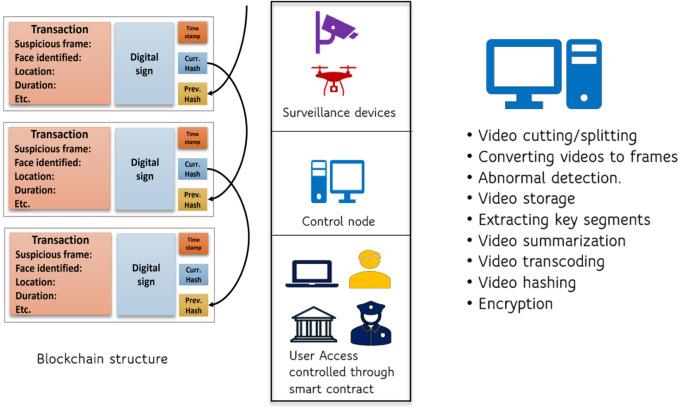How Blockchain Is Revolutionizing Qualification Verification: Benefits and Impact
Blockchain technology is reshaping countless industries, but its impact on qualification verification is both profound and timely. Whether for academic certificates, professional licensing, or skills validation, ensuring credentials are authentic and tamper-proof is critical in our digital age. But how is blockchain revolutionizing qualification verification, and what are the benefits and impacts for institutions, employers, and individuals alike? Let’s dive deep into the transformative role blockchain plays in this crucial process.
Understanding Blockchain in Qualification Verification
qualification verification traditionally relies on manual checks,paper documentation,and siloed databases—all susceptible to errors,fraud,and delays. Blockchain verification provides a future-ready, decentralized, and secure alternative.
- Blockchain technology creates an immutable record.
- Each qualification is digitally issued as a blockchain credential, permanently linked to the recipient.
- These records are encrypted, timestamped, and easily accessible—dramatically reducing fraud and providing real-time verification.
Key benefits of Blockchain-Based Qualification Verification
Adopting blockchain for qualification verification comes with a host of advantages for all stakeholders.Here’s how blockchain is transforming the verification landscape:
1. Enhanced Security and Trust
- Blockchain’s cryptographic foundation makes records tamper-proof.
- Verifications are transparent, providing trust for both issuers and verifiers.
- Eliminates the risk of forged diplomas, certificates, and licenses.
2. Streamlined Processes & Cost Savings
- Instant verification—no more lengthy administrative checks.
- reduces paperwork, manual errors, and administrative costs.
- Speeds up hiring, admissions, and compliance processes.
3. global Accessibility & Interoperability
- Credentials verified anywhere, in real-time, via secure blockchain networks.
- Supports cross-border recruitment, international studies, and remote work.
- Interoperable with existing education and HR systems via APIs.
4. Empowering Individuals
- Users retain control over their digital credentials.
- Share qualifications securely with employers or institutions with a click.
- Enhanced privacy and data protection—no need to hand over sensitive documents.
Impact across Sectors: Case Studies & Real-Life Examples
Education Sector
Universities and colleges worldwide are leveraging blockchain to issue verifiable degrees and transcripts. Such as, the MIT Digital Diploma project uses blockchain to provide graduates with tamper-proof, shareable certificates. Students benefit from instant proof of qualification, while employers can verify degrees at any time, from anywhere.
Professional Licensing
Medical boards, engineering associations, and other professional bodies are adopting blockchain for seamless license issuance. In Dubai, the Smart Dubai initiative ensures all professional licenses can be instantly verified through a secure digital ledger—eliminating credential fraud and improving efficiency for regulators.
Corporate HR & Recruitment
Major enterprises have begun integrating blockchain credential verification into hiring. Companies like PwC and Accenture now accept blockchain-based digital diplomas from candidates, cutting onboarding time and boosting confidence in new hires’ qualifications.
How Blockchain-Based Verification Works: A Step-by-Step Guide
Ever wondered how blockchain qualification verification operates in practice? Here’s a simplified breakdown:
- Issuance: A trusted institution (university, certifying body) creates a digital certificate and publishes a cryptographic record on a blockchain.
- Ownership: The recipient receives a secure link or digital wallet holding the credential.
- Verification: Third parties (like employers) access the blockchain record to instantly validate the credential’s authenticity.
- Privacy: Only necessary data is shared—ensuring GDPR and privacy compliance.
Popular Blockchain Platforms for Qualification Verification
- Blockcerts—Used globally in academia and professional sectors.
- TrueCerts—Specializes in digital diplomas and licenses.
- Sony Global Education—Offers blockchain-based transcript and assessment solutions.
Overcoming Challenges and Ensuring Successful Adoption
While the benefits of blockchain verification are clear, wide-scale adoption faces challenges:
- Standardization: Interoperable formats for digital credentials are needed globally.
- Regulatory compliance: Institutions must align blockchain processes with data protection laws (GDPR, CCPA).
- User Education: Stakeholders need training to utilize and trust new systems.
- Integration: Seamless API connections with existing HR and education platforms.
Practical Tips for Institutions
- Start with pilot projects targeting high-impact programs.
- Partner with established blockchain credential platforms for smoother integration.
- Educate faculty,staff,and students on blockchain credential benefits.
- Invest in robust cybersecurity and privacy tools.
First-Hand Experience: Real Stories from Users
Sarah, Graduate from MIT: “Having my diploma on the blockchain has been a game-changer. I applied for internships in three countries and was able to prove my qualifications with a secure digital link—no translation or paperwork delays!”
Ahmed, HR Director in Dubai: “Blockchain credential verification has nearly eliminated hiring fraud for us.We onboard candidates faster, trust our hires more, and save significant time in cross-verifying international degrees.”
Conclusion: The Future of Qualification Verification Is Here
blockchain is truly revolutionizing qualification verification, delivering secure, efficient, and globally accessible credentials for the digital age. As more institutions and employers adopt blockchain-based solutions, we’re heading towards a future where qualification fraud is obsolete, verification is instant, and individuals finally have control over their own credentials. If you’re an educator, professional body, HR manager, or job-seeker, now is the time to explore blockchain verification and embrace a future built on trust, transparency, and technological innovation.
Ready to transform your qualification verification process?
consider adopting blockchain-based credential platforms and join the global movement towards secure, reliable, and paperless verification.

